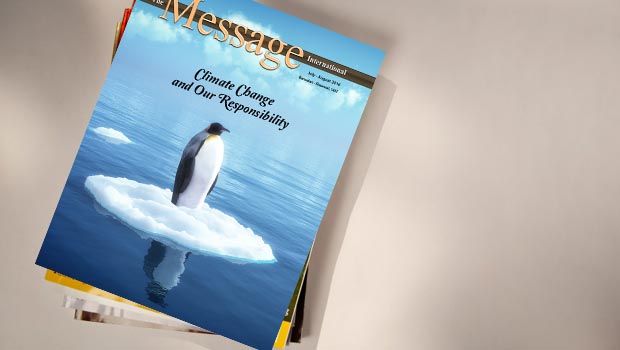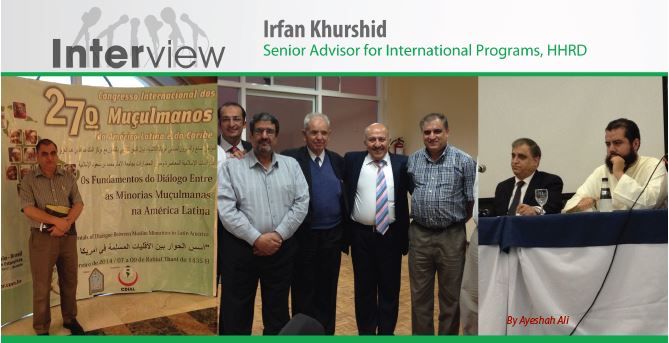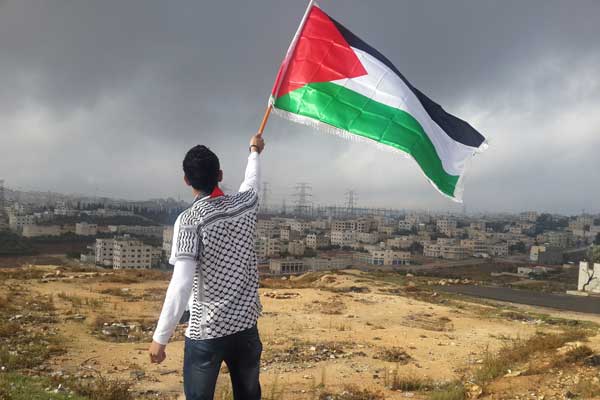Climate change is a serious global concern, and with the passage of time, the situation is worsening. In 2007, scientists from the International Panel on Climate Change (IPCC) predicted that sea levels could rise 7-23 inches by the year 2100. That report did not take into account the impact of melting glaciers.
Our concern for the environment must go beyond words and translate into actions
By 2014, the IPCC’s Fifth Assessment Report factored in the melting of the ice sheet, and projected a global sea level rise of 10 to 38 inches by the turn of the century. Densely populated coastal communities and the infrastructure that supports them would be severely affected worldwide. Some areas would be flooded, or at least more vulnerable to destruction from deadly storms. In some regions, drought could be more frequent and long-lasting. Even seemingly less dramatic local changes in temperature, precipitation, and soil moisture can severely affect agriculture and food supplies, human health, water availability, and much more. As a result, habitats and resources could be decimated, and various plant and animal species, as well as countless human lives, could be lost. Many experts are warning that we are fast approaching a tipping point at which time the harm cannot be contained and the wide-ranging effects irreversible.
The cause of climate change and global warming has been debated extensively and the scientific consensus is that there is a natural variability in climate but that human activity has pushed that variability to extremes. Recent studies also suggest that most of the warming over the last 50 years is due to human activity. In its 2007 report to the United Nations, the IPCC concluded that it is more than 90 percent likely that the accelerated warming of the past 50-60 years is due to human contributions. In this context, it is worth mentioning what the Quran declared fourteen hundred years ago: “Corruption has appeared on land and sea because of what people’s own hands have wrought, that He may make them taste something of what they have done, in order that they may turn back” (Quran 30: 41).
In Quran and hadith, we are reminded that humanity is designated as caretakers of this earth. The Quran says, “It is He who has appointed you vicegerent on the earth…” (Quran 6:165). The Prophet (peace be upon him) has also said, “The world is beautiful and verdant, and verily God, the exalted, has made you His stewards in it, and He sees how you acquit yourselves” (Muslim). In order to carry out this trust, we need to behave with moderation and responsibility. There is no denying that the use of fossil fuels threatens to destroy the gifts – beauty, balance of nature, and resources — bestowed on us by God. Our failure to appreciate and care for these gifts poses such a serious threat, and yet humanity continues on the path of abusive exploitation of the earth.
Having been inspired by Islamic teachings, Muslim environmental activists from 20 countries gathered in Istanbul last year and issued an “Islamic Declaration on Climate Change,” calling on the world’s 1.6 billion Muslims to do their part to eliminate dangerous greenhouse gas emissions and commit to renewable energy sources. The Declaration noted the following: “We recognize that we are but a miniscule part of the divine order, yet within that order, we are exceptionally powerful beings, and have the responsibility to establish good and avert evil in every way we can. We have no right to oppress the rest of creation or cause it harm. Intelligence and conscience behoove us, as our faith commands, to treat all things with care and awe (taqwa) of their Creator, compassion (rahmah) and utmost good (ihsan).” The Declaration also calls upon people everywhere and all national leaders to “commit themselves to 100% renewable energy and/or a zero emissions strategy; invest in decentralized renewable energy, which is the best way to reduce poverty and achieve sustainable development; and realize that to chase after unlimited economic growth in a planet that is finite and already overloaded is not viable. Growth must be pursued wisely and in moderation; placing a priority on increasing the resilience of all, and especially the most vulnerable.”
For the last few years, at the initiative of the United Nations, World Environment Day is observed annually on June 5th to create greater awareness of climate change. In conferences and summits, leaders and activists commit to minimizing further environmental degradation in the attempt to protect the world from the serious threats resulting from climate change. These are, no doubt, good initiatives. Yet, some individuals in our own country, including politicians and lawmakers, continue to deny climate change. And even when grand initiatives are put forth, they are too often unmatched by implementation. This issue of our magazine focuses on the need for practical action. Indeed, our concern for the environment must go beyond words and translate into actions.





